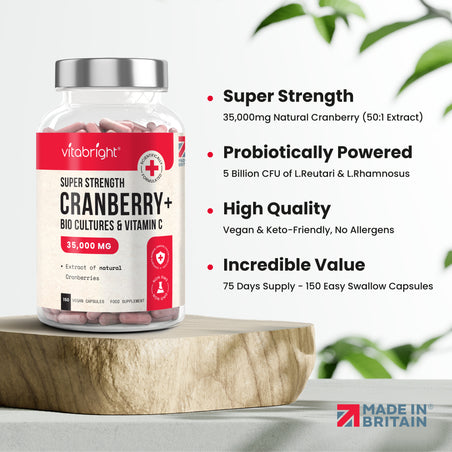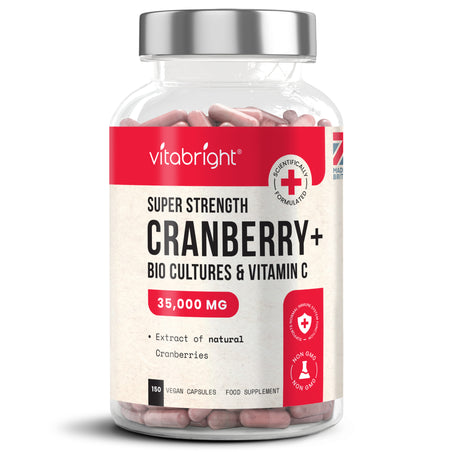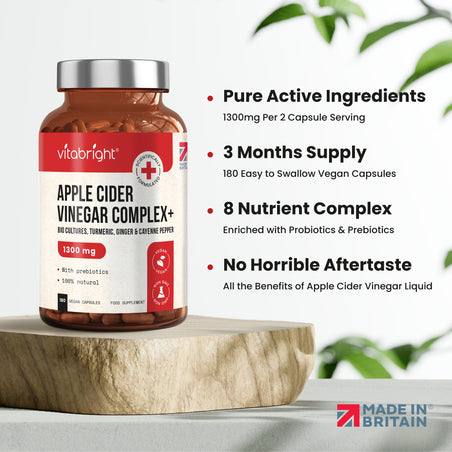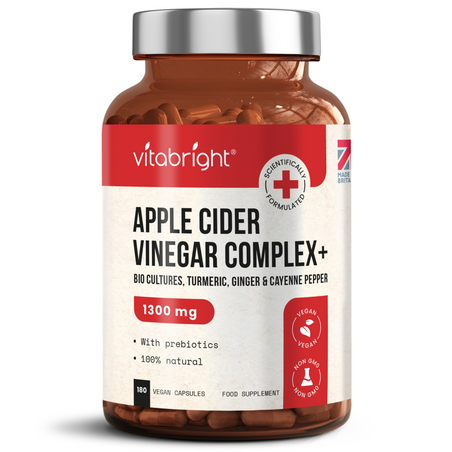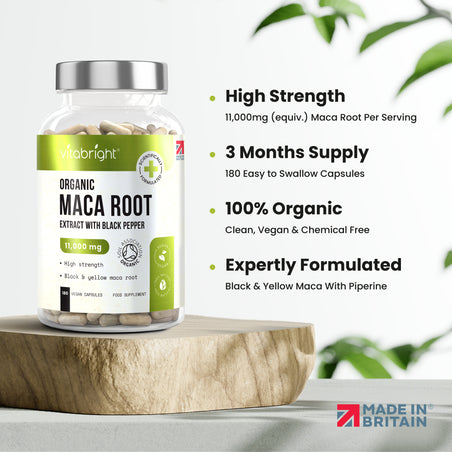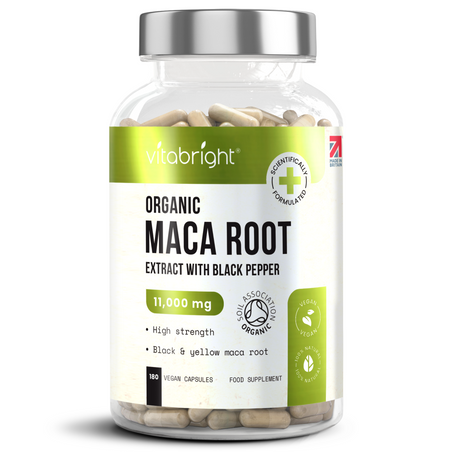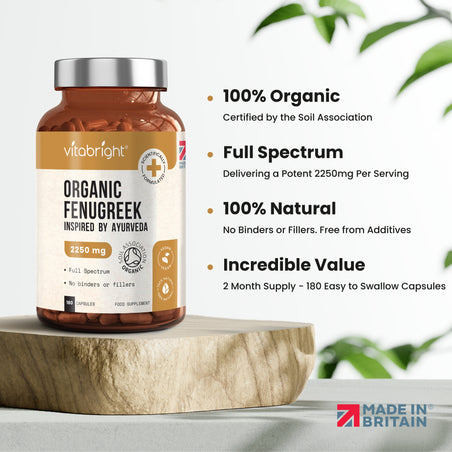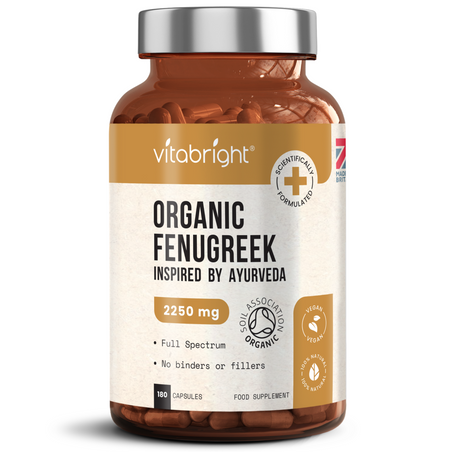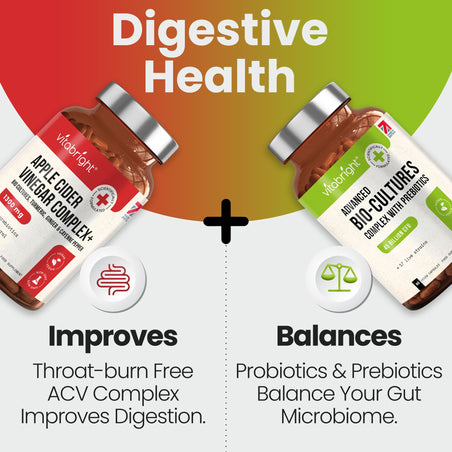Probiotic & Prebiotic Supplements Guide
- Better digestion
- Stronger immune system
- Easier weight management
- Ending urinary tract infections
- Female intimate health
The Right Probiotic Supplement for Your Health Needs
Probiotics are beneficial bacteria in the gut, which improve digestion and form part of the immune system.
Prebiotics are non-digestible fibres that stimulate the growth and activity of probiotics.
Bio Cultures Complex Advanced Multi Strain Probiotic
- Better digestion
- Stronger immune system
This all-rounder is a super probiotic complex designed to make your digestive system and gut microbiome balanced, healthy and working the best it can. It supports your immune system with 17 probiotic bacteria selected for their broad range of health benefits.
Super Strength Cranberry Probiotic Complex
- Stop UTIs
- Healthy vaginal microbiome
Designed for women, this cranberry probiotic complex contains probiotic bacteria that are selected to populate the gut and vagina with healthy bacteria that restore the female microbiome. This can reduce the risk of urinary tract infections, as well as keep the vagina healthy and smelling fresh.
Apple Cider Vinegar Complex with Inulin, Probiotics, Turmeric, Ging...
- Helps control appetite and supports weight management
- Probiotic with prebiotic
The probiotics with this apple cider vinegar concentrate are chosen to help dieters. They include the prebiotic inulin that helps the helpful bacteria thrive in the gut. The supplement also includes spices that support digestion and help control the appetite.
Organic Maca Root 11,000mg with Black Pepper, 180 Vegan Capsules, 3...
- Prebiotic
- Helps probiotic bacteria thrive in the gut
A prebiotic fibre supplement that supports general health and helps probiotic bacteria to thrive in the gut.
Organic Fenugreek Capsules
- Prebiotic
- Helps probiotic bacteria thrive in the gut
Fenugreek seed is another prebiotic that isn't digested by our enzymes but instead is fermented to nourish probiotic bacteria in the gut.
Digestive Health Nutrition Combo
Our apple cider vinegar combo with additional probiotics make the ideal partners to help you improve your digestive health while you are dieting and working to lose weight.

How Probiotics Help the Immune System
Probiotics play a crucial role in supporting and modulating the immune system, which is essential for defending against pathogens and maintaining overall health. The gut microbiome interacts closely with the immune system, influencing its development, function and response to infections.
1. Modulation of Gut Microbiota
Probiotics help maintain a balanced and diverse gut microbiome by promoting the growth of beneficial bacteria and inhibiting the growth of harmful bacteria. A balanced gut microbiome is essential for a healthy immune system as it supports the development and function of immune cells.
2. Enhancement of Gut Barrier Function
Probiotics help strengthen the gut barrier, also known as the intestinal epithelial barrier, which serves as the first line of defense against pathogens and harmful substances. A healthy gut barrier prevents the entry of pathogens and toxins into the bloodstream, reducing the risk of infections and inflammation.
3. Regulation of Immune Cells and Responses
Probiotics can stimulate the activity and function of immune cells, including macrophages, dendritic cells, and T and B lymphocytes, which play crucial roles in identifying and eliminating pathogens.
Probiotics produce anti-inflammatory compounds, such as short-chain fatty acids (SCFAs) and certain metabolites, which help reduce inflammation and regulate immune responses to prevent excessive inflammation and tissue damage.
4. Competition with Pathogenic Bacteria
Probiotics compete with pathogenic bacteria for nutrients and colonisation sites in the gut, preventing the overgrowth of harmful bacteria and reducing the risk of infections.
5. Production of Antimicrobial Substances
Some probiotic strains produce antimicrobial substances, such as bacteriocins and hydrogen peroxide, which have direct antimicrobial activity against pathogenic bacteria, viruses, and fungi, supporting a healthier gut environment.
6. Regulation of Immune Signalling Pathways
Probiotics can modulate immune signalling pathways, such as the NF-kB pathway and Toll-like receptor (TLR) signalling, to enhance immune responses against infections and promote immune tolerance to prevent autoimmune reactions.
Probiotics play a crucial role in supporting and modulating the immune system, which is essential for defending against pathogens and maintaining overall health. The gut microbiome interacts closely with the immune system, influencing its development, function and response to infections.
1. Modulation of Gut Microbiota
Probiotics help maintain a balanced and diverse gut microbiome by promoting the growth of beneficial bacteria and inhibiting the growth of harmful bacteria. A balanced gut microbiome is essential for a healthy immune system as it supports the development and function of immune cells.
2. Enhancement of Gut Barrier Function
Probiotics help strengthen the gut barrier, also known as the intestinal epithelial barrier, which serves as the first line of defense against pathogens and harmful substances. A healthy gut barrier prevents the entry of pathogens and toxins into the bloodstream, reducing the risk of infections and inflammation.
3. Regulation of Immune Cells and Responses
Probiotics can stimulate the activity and function of immune cells, including macrophages, dendritic cells, and T and B lymphocytes, which play crucial roles in identifying and eliminating pathogens.
Probiotics produce anti-inflammatory compounds, such as short-chain fatty acids (SCFAs) and certain metabolites, which help reduce inflammation and regulate immune responses to prevent excessive inflammation and tissue damage.
4. Competition with Pathogenic Bacteria
Probiotics compete with pathogenic bacteria for nutrients and colonisation sites in the gut, preventing the overgrowth of harmful bacteria and reducing the risk of infections.
5. Production of Antimicrobial Substances
Some probiotic strains produce antimicrobial substances, such as bacteriocins and hydrogen peroxide, which have direct antimicrobial activity against pathogenic bacteria, viruses, and fungi, supporting a healthier gut environment.
6. Regulation of Immune Signalling Pathways
Probiotics can modulate immune signalling pathways, such as the NF-kB pathway and Toll-like receptor (TLR) signalling, to enhance immune responses against infections and promote immune tolerance to prevent autoimmune reactions.

Best Probiotic Strains for Immune Support
While many probiotic strains can support gut health and immune function, some strains have been studied specifically for their potential immune-supporting benefits.
These are three of the strongest immune-supporters in our probiotic Bio Cultures supplement.
Lactobacillus rhamnosus GG (LGG): Known for its immune-enhancing properties and ability to reduce the duration and severity of respiratory infections.
Bifidobacterium lactis: Shown to enhance immune responses and reduce the risk of respiratory and gastrointestinal infections.
Lactobacillus casei: May support immune function and reduce the risk of respiratory infections in children and adults.
While many probiotic strains can support gut health and immune function, some strains have been studied specifically for their potential immune-supporting benefits.
These are three of the strongest immune-supporters in our probiotic Bio Cultures supplement.
Lactobacillus rhamnosus GG (LGG): Known for its immune-enhancing properties and ability to reduce the duration and severity of respiratory infections.
Bifidobacterium lactis: Shown to enhance immune responses and reduce the risk of respiratory and gastrointestinal infections.
Lactobacillus casei: May support immune function and reduce the risk of respiratory infections in children and adults.
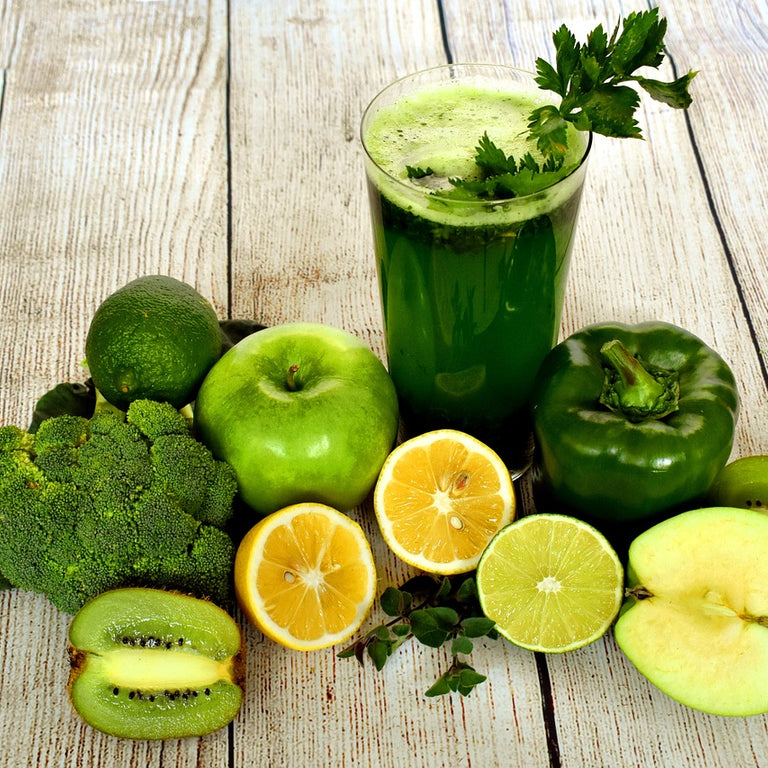
How Probiotics Support Weight Loss and Dieting
While probiotics alone are not a magic solution for weight loss, they can play a supportive role when combined with a healthy diet, regular exercise, and lifestyle changes.
1. Regulation of Gut Microbiota
Probiotics help maintain a balanced and diverse gut microbiome by promoting the growth of beneficial bacteria and inhibiting the growth of harmful bacteria. A healthy gut microbiome is associated with better digestion, nutrient absorption, and overall metabolic health, which can support weight management.
2. Reduction of Fat Storage
Some strains of probiotics, such as Lactobacillus gasseri, have been shown to reduce the absorption of dietary fat in the intestine, leading to decreased fat storage and potentially supporting weight loss.
3. Regulation of Appetite and Food Intake
Probiotics may help regulate appetite and food intake by influencing the production of appetite-regulating hormones like leptin and ghrelin. By promoting feelings of fullness and reducing cravings, probiotics can support better portion control and reduced calorie intake.
4. Improved Insulin Sensitivity
Probiotics can help improve insulin sensitivity and reduce insulin resistance, which are key factors in the development of obesity and metabolic syndrome. By promoting better blood sugar control, probiotics may support weight loss and reduce the risk of type 2 diabetes.
5. Reduction of Inflammation
Chronic inflammation is linked to obesity and metabolic disorders. Probiotics have anti-inflammatory properties that can help reduce inflammation in the gut and throughout the body. By reducing inflammation, probiotics may support improved metabolic health and weight management.
6. Enhanced Fat Burning During Exercise
Some studies suggest that probiotics can enhance energy metabolism and fat burning during exercise by increasing the production of certain hormones and short-chain fatty acids that promote fat oxidation and energy expenditure.
While probiotics alone are not a magic solution for weight loss, they can play a supportive role when combined with a healthy diet, regular exercise, and lifestyle changes.
1. Regulation of Gut Microbiota
Probiotics help maintain a balanced and diverse gut microbiome by promoting the growth of beneficial bacteria and inhibiting the growth of harmful bacteria. A healthy gut microbiome is associated with better digestion, nutrient absorption, and overall metabolic health, which can support weight management.
2. Reduction of Fat Storage
Some strains of probiotics, such as Lactobacillus gasseri, have been shown to reduce the absorption of dietary fat in the intestine, leading to decreased fat storage and potentially supporting weight loss.
3. Regulation of Appetite and Food Intake
Probiotics may help regulate appetite and food intake by influencing the production of appetite-regulating hormones like leptin and ghrelin. By promoting feelings of fullness and reducing cravings, probiotics can support better portion control and reduced calorie intake.
4. Improved Insulin Sensitivity
Probiotics can help improve insulin sensitivity and reduce insulin resistance, which are key factors in the development of obesity and metabolic syndrome. By promoting better blood sugar control, probiotics may support weight loss and reduce the risk of type 2 diabetes.
5. Reduction of Inflammation
Chronic inflammation is linked to obesity and metabolic disorders. Probiotics have anti-inflammatory properties that can help reduce inflammation in the gut and throughout the body. By reducing inflammation, probiotics may support improved metabolic health and weight management.
6. Enhanced Fat Burning During Exercise
Some studies suggest that probiotics can enhance energy metabolism and fat burning during exercise by increasing the production of certain hormones and short-chain fatty acids that promote fat oxidation and energy expenditure.

Best Probiotic Strains for Weight Loss
While many probiotic strains can support gut health and overall well-being, some strains have been studied specifically for their potential benefits in weight management:
Lactobacillus gasseri: Shown to reduce abdominal fat and body weight in some studies.
Lactobacillus rhamnosus: May help reduce body weight and fat mass by promoting fat oxidation and appetite regulation.
Bifidobacterium breve: Can support weight loss by improving insulin sensitivity and reducing inflammation.
While many probiotic strains can support gut health and overall well-being, some strains have been studied specifically for their potential benefits in weight management:
Lactobacillus gasseri: Shown to reduce abdominal fat and body weight in some studies.
Lactobacillus rhamnosus: May help reduce body weight and fat mass by promoting fat oxidation and appetite regulation.
Bifidobacterium breve: Can support weight loss by improving insulin sensitivity and reducing inflammation.
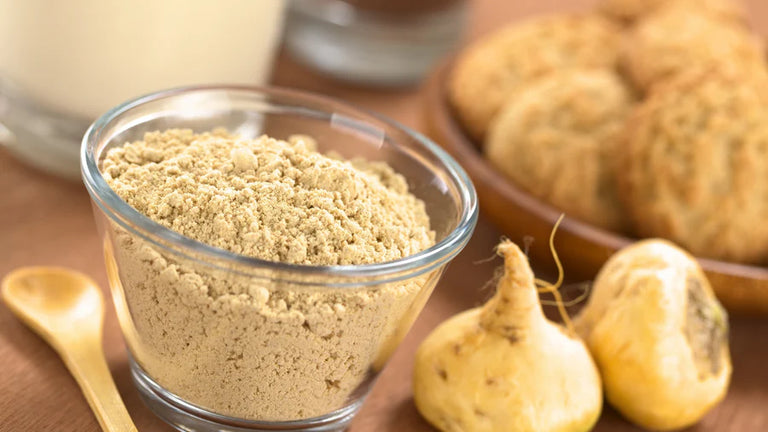
Maca Root Prebiotic Supplement
Maca Root contains prebiotic fibres that can support the growth and balance of beneficial gut bacteria. It's helpful to take it with a probiotic supplement.
- Fibre Content: Maca root is rich in dietary fibre, particularly fructooligosaccharides (FOS), a type of soluble fibre that acts as a prebiotic.
- Gut Health: The prebiotic fibres in maca root can help promote a healthy gut microbiome by feeding beneficial bacteria and supporting overall digestive health.
- Enhanced Absorption: By supporting the growth of beneficial bacteria in the gut, maca root's prebiotic properties may also help enhance the absorption of nutrients and improve overall digestive function.
- Supports Immune Function: A healthy gut microbiome plays a crucial role in supporting immune function, and maca root's prebiotic fibres can contribute to a balanced and robust immune system.
Maca Root contains prebiotic fibres that can support the growth and balance of beneficial gut bacteria. It's helpful to take it with a probiotic supplement.
- Fibre Content: Maca root is rich in dietary fibre, particularly fructooligosaccharides (FOS), a type of soluble fibre that acts as a prebiotic.
- Gut Health: The prebiotic fibres in maca root can help promote a healthy gut microbiome by feeding beneficial bacteria and supporting overall digestive health.
- Enhanced Absorption: By supporting the growth of beneficial bacteria in the gut, maca root's prebiotic properties may also help enhance the absorption of nutrients and improve overall digestive function.
- Supports Immune Function: A healthy gut microbiome plays a crucial role in supporting immune function, and maca root's prebiotic fibres can contribute to a balanced and robust immune system.










